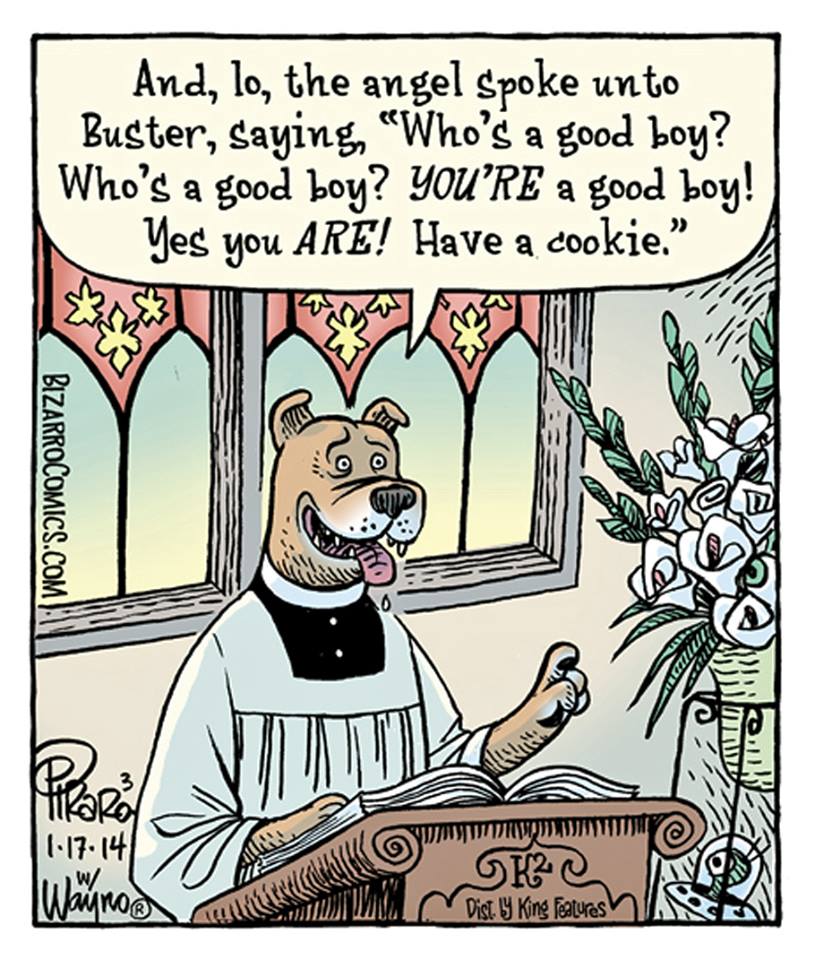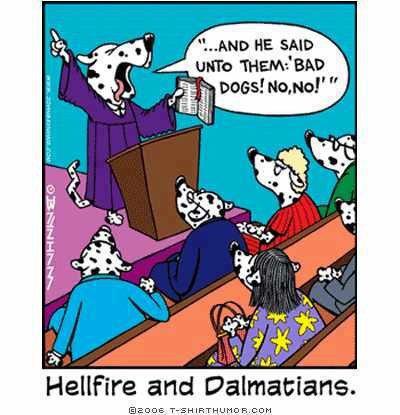From the Letter to the Hebrews:
But Jesus has now obtained a more excellent ministry, and to that degree he is the mediator of a better covenant, which has been enacted through better promises.
(From the Daily Office Lectionary – Hebrews 8:5 (NRSV) – January 27, 2014.)
A cartoon showed up on Facebook this morning:

It immediately brought to mind a cartoon from years ago, which I posted in answer to my friend who offered the first; I captioned it with a question — “Another denomination?”

And then the writer to the Letter to the Hebrews comes along in the Daily Office readings with his suggestion that the death, resurrection, and ascension of Jesus has created “a better covenant” than that made by God with the Hebrews at Sinai. He even goes so far as to say, in a few verses that God “has made the first one obsolete. And what is obsolete and growing old will soon disappear.” (v. 13) I don’t actually believe that’s so, as history has shown that Judaism is not likely to disappear. But what this has me thinking about is denominationalism and our tendency to think that our way of being Christian, whatever it may be, is better than some other way of being Christian.
Back in the 1970s we had a saying — “Different strokes for different folks” — which I’ve always thought a good reason for there to be differing expressions of the faith. I grew up in a multi-denominational household: my mother was reared in the Disciples of Christ; my father was a Methodist; my step-father was Baptist who had converted to Roman Catholicism; my brother joined the Missouri Synod Lutherans and then married a member of the United Church of Canada. And nearly all of them, by the time I became an Episcopalian, were non-practicing. So none of those traditions seemed any “better” than the others; they were simply different.
Yesterday we held the annual meeting of our parish. We heard reports from staff and program leaders about the past year and plans for the coming year; we elected members of the governing board; we appointed representatives to our larger judicatory; we received a budget. Then we held a worship service – the celebration of the Holy Eucharist, shared a meal, and went home. We did all these things the way Episcopalians do them. We could have done them the way Baptists or Lutherans or Methodists do them, but we didn’t. Because we’re Episcopalians. Our way isn’t “better;” it’s simply different.
From time to time members of our evangelism and growth teams will suggest that we do something like the big evangelical non-denominational church down the street or in another town. Usually the reason is because that church is bigger than we are, so they must be “doing something right.” The implication is that what that bigger church is doing is “better.” Maybe it is . . . but it may just be that it’s different.
The unfortunate problem with denominationalism is that sort of judgmentalism about which denomination, which way of being Christian, is “better” always seems to creep into the conversation! We need to remember that old saw from the 1970s — “Different strokes for different folks” — and recognize that not everyone is fed by our particular style of worship, governance, fellowship, or theology. For some, the church which emphasizes “Who’s a good dog? Who wants a cookie?” feeds their spirit; for others, the church which preaches “He said unto them ‘No, No'” makes more sense. Neither is better; they’re simply different.
====================
A request to my readers: I’m trying to build the readership of this blog and I’d very much appreciate your help in doing so. If you find something here that is of value, please share it with others. If you are on Facebook, “like” the posts on your page so others can see them. If you are following me on Twitter, please “retweet” the notices of these meditations. If you have a blog of your own, please include mine in your links (a favor I will gladly reciprocate). Many thanks!
====================
Father Funston is the rector of St. Paul’s Episcopal Church, Medina, Ohio.



0 Comments
1 Pingback